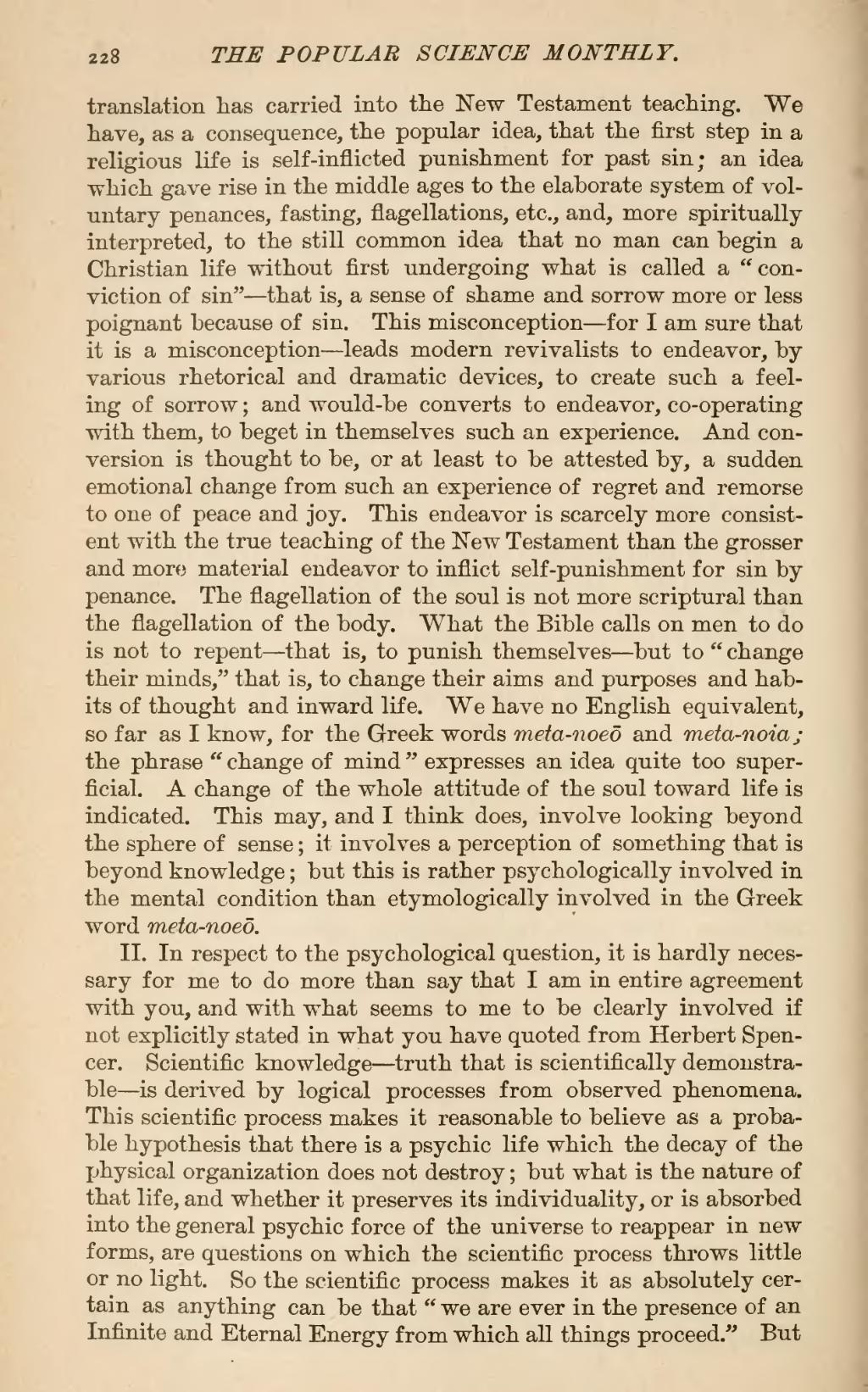translation has carried into the New Testament teaching. We have, as a consequence, the popular idea, that the first step in a religious life is self-inflicted punishment for past sin; an idea which gave rise in the middle ages to the elaborate system of voluntary penances, fasting, flagellations, etc., and, more spiritually interpreted, to the still common idea that no man can begin a Christian life without first undergoing what is called a "conviction of sin"—that is, a sense of shame and sorrow more or less poignant because of sin. This misconception—for I am sure that it is a misconception—leads modern revivalists to endeavor, by various rhetorical and dramatic devices, to create such a feeling of sorrow; and would-be converts to endeavor, co-operating with them, to beget in themselves such an experience. And conversion is thought to be, or at least to be attested by, a sudden emotional change from such an experience of regret and remorse to one of peace and joy. This endeavor is scarcely more consistent with the true teaching of the New Testament than the grosser and more material endeavor to inflict self-punishment for sin by penance. The flagellation of the soul is not more scriptural than the flagellation of the body. What the Bible calls on men to do is not to repent—that is, to punish themselves—but to "change their minds," that is, to change their aims and purposes and habits of thought and inward life. We have no English equivalent, so far as I know, for the Greek words meta-noeö and meta-noia; the phrase "change of mind" expresses an idea quite too superficial. A change of the whole attitude of the soul toward life is indicated. This may, and I think does, involve looking beyond the sphere of sense; it involves a perception of something that is beyond knowledge; but this is rather psychologically involved in the mental condition than etymologically involved in the Greek word meta-noeö.
II. In respect to the psychological question, it is hardly necessary for me to do more than say that I am in entire agreement with you, and with what seems to me to be clearly involved if not explicitly stated in what you have quoted from Herbert Spencer. Scientific knowledge—truth that is scientifically demonstrable—is derived by logical processes from observed phenomena. This scientific process makes it reasonable to believe as a probable hypothesis that there is a psychic life which the decay of the physical organization does not destroy; but what is the nature of that life, and whether it preserves its individuality, or is absorbed into the general psychic force of the universe to reappear in new forms, are questions on which the scientific process throws little or no light. So the scientific process makes it as absolutely certain as anything can be that "we are ever in the presence of an Infinite and Eternal Energy from which all things proceed." But
